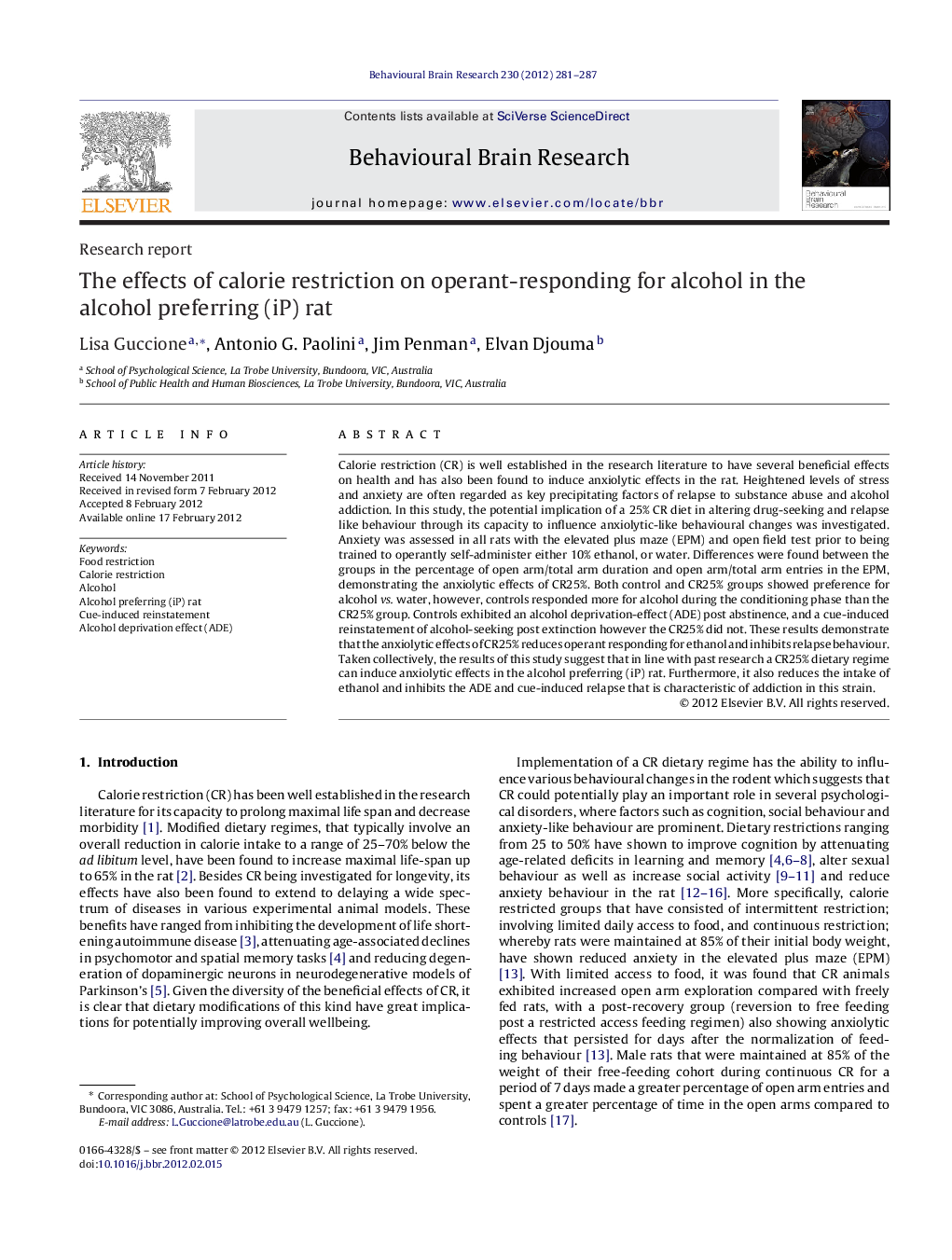| Article ID | Journal | Published Year | Pages | File Type |
|---|---|---|---|---|
| 6259604 | Behavioural Brain Research | 2012 | 7 Pages |
Calorie restriction (CR) is well established in the research literature to have several beneficial effects on health and has also been found to induce anxiolytic effects in the rat. Heightened levels of stress and anxiety are often regarded as key precipitating factors of relapse to substance abuse and alcohol addiction. In this study, the potential implication of a 25% CR diet in altering drug-seeking and relapse like behaviour through its capacity to influence anxiolytic-like behavioural changes was investigated. Anxiety was assessed in all rats with the elevated plus maze (EPM) and open field test prior to being trained to operantly self-administer either 10% ethanol, or water. Differences were found between the groups in the percentage of open arm/total arm duration and open arm/total arm entries in the EPM, demonstrating the anxiolytic effects of CR25%. Both control and CR25% groups showed preference for alcohol vs. water, however, controls responded more for alcohol during the conditioning phase than the CR25% group. Controls exhibited an alcohol deprivation-effect (ADE) post abstinence, and a cue-induced reinstatement of alcohol-seeking post extinction however the CR25% did not. These results demonstrate that the anxiolytic effects of CR25% reduces operant responding for ethanol and inhibits relapse behaviour. Taken collectively, the results of this study suggest that in line with past research a CR25% dietary regime can induce anxiolytic effects in the alcohol preferring (iP) rat. Furthermore, it also reduces the intake of ethanol and inhibits the ADE and cue-induced relapse that is characteristic of addiction in this strain.
⺠A 25% calorie restriction (CR) induces anxiolytic effects in the alcohol preferring (iP) rat. ⺠During the conditioning phase CR25% group self-administered less ethanol rewards than controls. ⺠The CR25% group did not display an alcohol deprivation effect (ADE) unlike that of controls. ⺠CR25% failed to reinstate to cue-induced relapse and did not display typical relapse behaviour.
